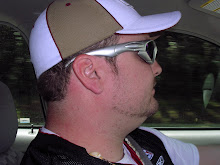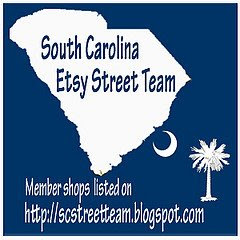I have done a lot of vending over the years, and I wanted to give some input to this topic. This is just some of my experiences with a variety of different shows, craft fairs, and festivals.
Vending for me has always been first and foremost to make money. However the reality of making tons of money by selling every item you take usually is not the reality. I have rarely (relative to the # of events I have attended, & amount of items I brought to sell) come close to selling out.
Vending can get expensive. I have paid up to $400 dollars for a booth, and have driven 13+ hours for an event. Then add the cost of hotels and food, multiplied by the number of days you are away from home, then multiply those days by the fact that you are not at home producing your products, and things can get expensive quick.
Vending is tricky. Just like the location of a storefront is everything, the location of your booth at an event is crucial. So contact the Event staff to find out if you pay for vending, where your spot will be. This will help you to determine whether or not it is worth the vendor fees. Also depending on the size of an event, vending fees may differ depending on there location within the event. High traffic areas may cost more than vendors around the perimeter are paying.
Know what you are getting into. Do some reasearch on the event so you know how many people, and other vendors will be attending. Also know the local laws about vending. Some places don't have any requirements, while other places require fees and vending licences. The best place to get all this information is from the event staff. They should know the local laws and info on attendees and volume of vendors. However they are always trying to promote their event so they may stretch the numbers to make it sound more inticing. Another good place to get info on local vending reulations is that locations chamber of commerce.
Variety is probably the key to greatest volume of sales. Also having enough of everything is very important. When preparing for a vending trip I plan on taking way more product than I expect to sell. The last thing you want is to sell out of something that is really selling well that day. Having to much of something isn't to much of a problem because you can always store your extra stuff under a table, and restock your tables as nessasary. There is a trick to selling most of the stuff you have left over after the event. I will get to that later.
When you get your booth set up at your event, be sure to take a good look around. Take along a helper or signifigant other who can stay at your booth while you go see what everybody else brought to sell. (A helper comes in very handy when business really picks up:) It is a good idea to know what the comps are in your area. By this I mean it is important to know how much the other vendors are selling their products for. This may help you gauge the best price to sell your items for. You know the value of your craft or art, and you want to get the most money possible for each item. There is a fine line you walk as a vendor. You don't want to under cut all the other vendors prices, so that you are the only one selling anything. Yet you also want to sell as much of what you brought as you possibly can. So what do you do. It is up to you to decide what is best for you. I usually start off asking high prices for my items. Potential customers are going to try to bargain with you anyway so the high price tactic makes them feel like they are getting a deal. If the high price thing isn't working because your not selling much, then drop your prices accordingly. I usally decrease my prices throughout the day ending with sale type pricing by the end of the event.
Advanced reading material
14 years ago








No comments:
Post a Comment